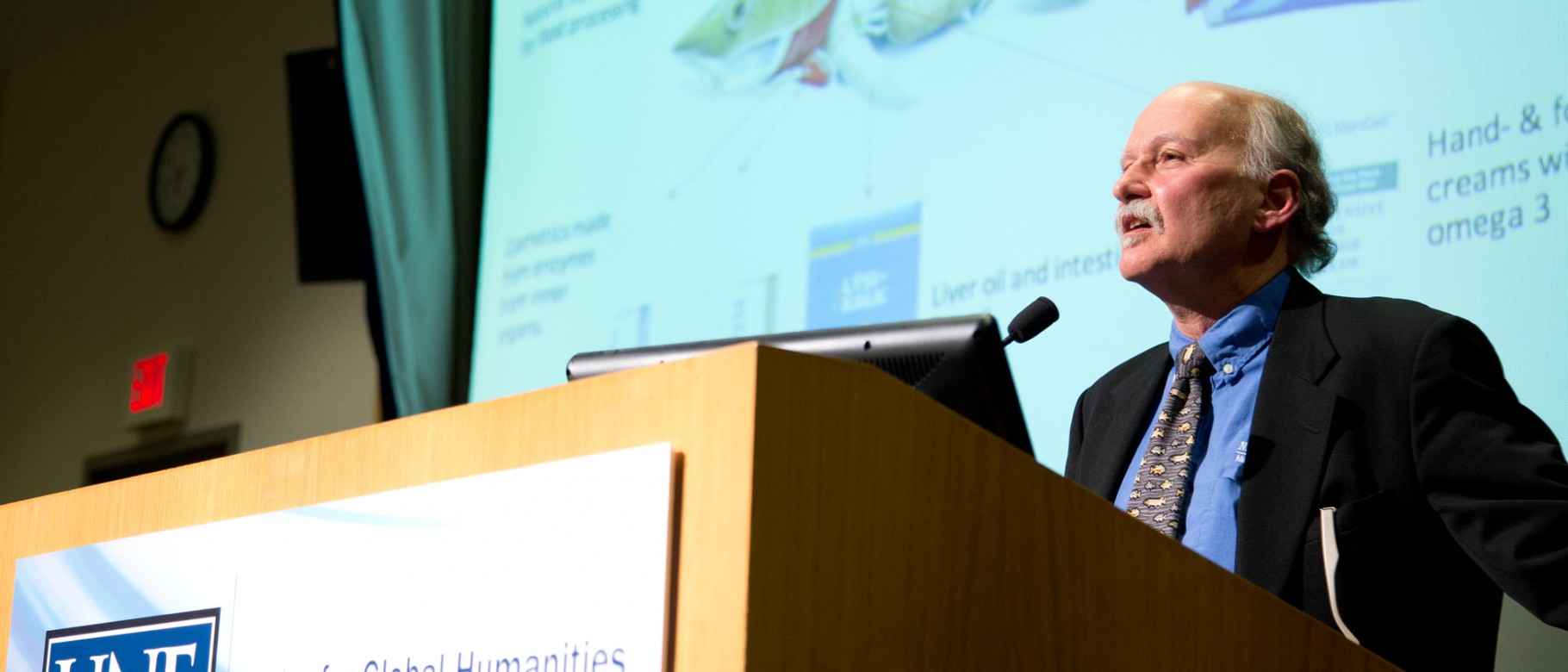UNE Center for Global Humanities hosts lecture on “How Climate Change is Reshaping Maine’s Ocean Economy”

Global climate change is opening new corridors in the arctic, leaving Maine uniquely positioned to capitalize on developing opportunities in the ocean economy. A lecture at the University of New England titled “How Climate Change is Reshaping Maine’s Ocean Economy” explored the exciting possibilities for Maine’s fisheries, aquaculture industry and maritime fields.
The lecture was delivered by Barry Costa-Pierce, Ph.D., Henry L. & Grace Doherty Professor of Marine Sciences at UNE, chair of UNE’s Department of Marine Sciences and director of UNE’s Marine Science Center. Costa-Pierce’s four-decade career in the marine and aquatic sciences has involved work for 11 different universities and organizations in Southeast Asia and Sub-Saharan Africa. He has conducted research for multilateral and bilateral agencies such as the Food and Agriculture Organization, World Bank, Asian Development Bank, GTZ-Germany, USAID and the World Fish Centre. He is widely recognized as a global expert in fisheries, aquaculture and sustainable sea foods, and is a pioneer in the field of ecological aquaculture.
“Maine is the new ‘near-Arctic state’ in the emerging North Atlantic seafood ecosystem,” explained Costa-Pierce. “Our world is on the cusp of a great Arctic seafood science and trade revolution, and the Gulf of Maine is positioned to be a hub of marine commerce, science and education with the Arctic countries.”